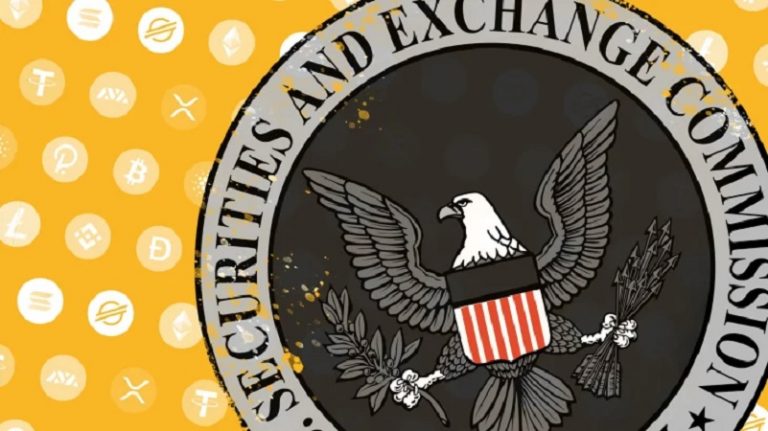
Solana Policy Institute, alongside Superstate Inc., Orca Creative, and Lowenstein Sandler LLP, submitted a proposal to the U.S. Securities and Exchange Commission named “Project Open.” This initiative seeks to establish a pilot program for issuing and trading equity securities on public blockchain networks, specifically leveraging Solana’s high-performance blockchain. The proposal aims to innovate financial markets by enabling instant settlements, greater transparency, and lower costs through tokenizing securities, allowing programmable compliance and efficient settlement mechanisms.
The filing requests exemptive relief to operate under existing regulatory frameworks, proposing that issuers register token shares while blockchain networks avoid SEC registration. If approved, Project Open could mark a significant step toward SEC-sanctioned securities trading on decentralized platforms, with Solana as a key infrastructure.
Blockchain enables near-instantaneous transaction finality, reducing settlement times from days (e.g., T+2 in traditional markets) to seconds. This minimizes counterparty risk and frees up capital. By automating processes like clearing, settlement, and compliance through smart contracts, tokenization reduces intermediary fees, lowering transaction and operational costs for issuers and investors.
Register for Tekedia Mini-MBA edition 17 (June 9 – Sept 6, 2025) today for early bird discounts. Do annual for access to Blucera.com.
Tekedia AI in Business Masterclass opens registrations.
Join Tekedia Capital Syndicate and co-invest in great global startups.
Register to become a better CEO or Director with Tekedia CEO & Director Program.
Blockchain’s immutable ledger ensures all transactions are publicly verifiable, enhancing trust and auditability while reducing fraud and errors. Tokens can embed regulatory rules (e.g., KYC/AML, trading restrictions) into smart contracts, ensuring automated compliance and reducing manual oversight costs.
Tokenized equities can be fractionalized, allowing smaller investors to own portions of high-value assets, democratizing access to markets.Blockchain operates 24/7 across borders, enabling seamless trading and investment worldwide without traditional market hour limitations.
Tokens on Solana can integrate with DeFi protocols, enabling new financial products like automated lending or yield farming with equities as collateral. These benefits align with Project Open’s goal to modernize securities markets, leveraging Solana’s high throughput (65,000+ transactions per second) and low fees (sub-$0.01 per transaction) to scale efficiently. However, regulatory approval and adoption hurdles remain critical challenges.
Fractional ownership on tokenized equities on a blockchain like Solana refers to dividing ownership of an asset, such as a share of stock, into smaller, more affordable portions represented as digital tokens. This enables multiple investors to hold a fraction of the asset, rather than requiring purchase of a whole unit. An equity (e.g., a share of a company) is converted into digital tokens on a blockchain. Each token represents a fraction of the underlying asset.
A single share, which might traditionally cost $100, can be split into, say, 100 tokens, each worth $1, making it accessible to smaller investors. The blockchain’s transparent ledger records who owns each token, ensuring clear, verifiable ownership without intermediaries. These tokens can be bought, sold, or traded on blockchain-based platforms, often with instant settlement and low fees.
Lowers the financial barrier, allowing retail investors to participate in high-value assets (e.g., owning 0.01 of a share in a $1,000 stock). Fractional tokens can be traded easily on decentralized exchanges, increasing market participation and liquidity. Investors can spread capital across multiple assets by buying fractions of various equities, reducing portfolio risk.
It enables investors from diverse economic backgrounds or regions to access markets traditionally limited to high-net-worth individuals. Tokens can embed rights like dividends or voting, distributed proportionally to fractional owners via smart contracts. In the Solana Policy Institute’s proposal to the SEC, fractional ownership is a key feature of tokenized equities. By leveraging Solana’s scalable blockchain, issuers can offer fractionalized shares with automated compliance (e.g., KYC/AML checks) and low-cost trading, democratizing access to securities markets.
For example, an investor could buy a $5 token representing a fraction of a company’s stock, receiving proportional dividends and benefits, all settled instantly on-chain. Fractionalized securities must adhere to securities laws, requiring clear SEC guidance, as sought in Project Open.
Traditional investors may hesitate to embrace tokenized assets due to unfamiliarity or trust concerns. Blockchain security and smart contract vulnerabilities must be addressed to protect fractional owners. Fractional ownership, enabled by tokenization, aligns with the goal of modernizing financial markets by making them more inclusive, efficient, and transparent, as envisioned in the Project Open proposal.



